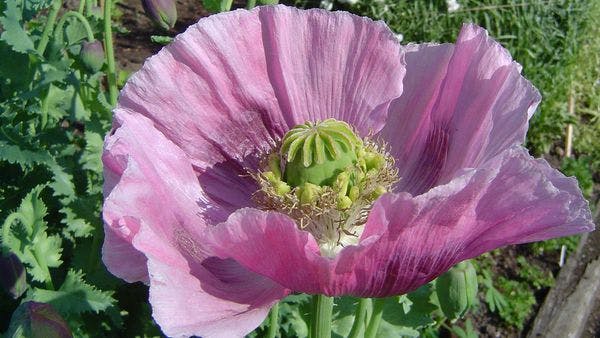Louise Joly - Wikimedia Commons - CC BY-SA 1.0
Opium cultivation and environmental justice in Myanmar
A TNI Commentary
Across the world, the state of environmental stress is unprecedented. As scholarship and activism on ‘environmental justice’ point out, poorer and marginalised communities face particular exposure to environmental harms.
This holds especially true for populations in the Global South, including Myanmar. The role of opium cultivation in relation to these environmental stresses is an underexplored terrain. Yet, as this new TNI report argues, drugs, as well as the policy responses to them, are an environmental crisis in Myanmar as well as other countries where opium poppy, coca bush and cannabis plants are cultivated.
Across the world, the state of environmental stress is unprecedented. This includes major threats to the lands, soils, waters, forests, and oceans that make up our ecosystems and biodiverse nature. Cutting across all of this are the unfolding effects of climate change and global heating. All of these developments will continue to have dramatic impacts on both people and planet. These impacts are however not evenly distributed. As scholarship and activism on ‘environmental justice’ points out, poorer and marginalised communities, often differentiated along class, gender and racial lines, face particular exposure to environmental harms. This holds particularly true for populations in the Global South.
The role of illicit drugs in relation to these environmental stresses is an underexplored terrain. Yet, as this report will argue, drugs, as well as the policy responses to them, are an environmental issue. This disconnect between drug and environmental policy is the result largely of the institutional compartmentalisation of the issue of drugs into the domain of crime and law enforcement with little outreach to other spheres related to the environment or sustainable development. References to the environment within drug policy have as such remained sparse and limited in scope.
This is slowly changing. A resolution on alternative development adopted by the Commission on Narcotic Drugs (CND) - the central drug policy-making body within the UN system - in March this year gave special attention to environmental protection, encouraging “Member States to examine and address, within the efforts of alternative development, the harmful impact of the illicit cultivation of crops used for the production of narcotic drugs on the environment, which may lead to deforestation and the pollution of soil and water, and to seize the opportunities offered by alternative development with regard to the conservation and sustainable use of the environment and the protection of biodiversity”. And for the first time this year, the 2022 United Nations Office on Drugs and Crime (UNODC) World Drug Report will include a special booklet on the connection between illicit drugs and the environment. This follows on from an increasing number of official side-events that have been organised in recent years at the CND in Vienna on the issue of drugs and the environment.
TNI’s latest report ‘Prohibited Plants. Environmental Justice in Drug Policy’ explores, among other things, the environmental dynamics associated with opium poppy cultivation in the two regions with which it is most associated: Myanmar (as part of the so-called ‘Golden Triangle’ along with Thailand and Laos) and Afghanistan. The two cases make for an interesting contrast. While in the case of Myanmar, more traditional forms of cultivation practised by upland populations and ethnic minority groups as part of mobile agricultural systems are examined, in Afghanistan the environmental implications of the introduction of new ‘green’ technologies in the form of solar-powered deepwater wells for long-term sustainability are discussed. In both cases, opium cultivation has continued, if not dramatically increased, against the backdrop of a series of bans and, with few exceptions, failed crop-substitution and alternative development (AD) programmes.
